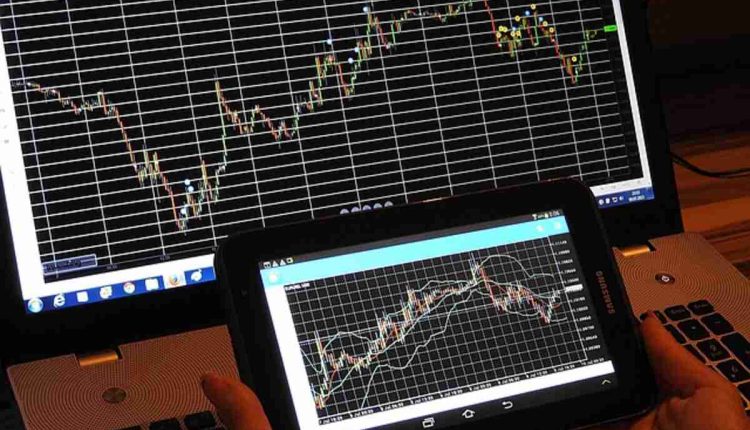If speculators believe a currency will decline, they can profit by selling it in the forward market. In this market, individuals agree to sell an asset at a later date for an agreed-upon exchange rate. Choose the best forex robot.
This type of speculation differs from traditional investment, which typically focuses on longer-term trends and an economy’s fundamentals.
Buying
Currency speculation can be lucrative, yet not without risk. Aside from potentially losing money through speculation, volatile markets or inflationary forces could arise that lead to further instability. Therefore, investors must understand how currency speculation works before investing.
Speculators buy or sell currencies based on their predicted future exchange rates. For instance, if they believe the dollar will appreciate in value against the Euro, they would buy dollars while selling Euros—this strategy is known as carrying trade, which may prove profitable if markets remain stable.
Currency speculation often results from herd behavior among traders. When enough traders believe a certain currency will rise in value, its price actually does so—this phenomenon is known as a self-fulfilling prophecy, and it can have serious ramifications for an economy.
Currency speculation is essential to international trade. For example, when German car exporters export cars to the U.S., they must exchange their national currency for American dollars. A middleman then purchases and converts these American dollars back into Deutsche Marks (DMs), which German companies use to pay workers and suppliers. Currency speculators often take advantage of this process by charging transaction fees, but eventually, original buyers will signal to other speculators it’s time to exit, and the currency prices will begin falling once again.
Selling
Currency speculation transactions involve purchasing one currency in anticipation of profiting from differences in exchange rates caused by political events, economic news, or market factors. These rates may change frequently as events unfold and political, economic, or market developments unfold. Depending on their predictions of future trends, speculators can either help or harm economies.
Some speculators are essential in smoothing international trade. For instance, when a German car manufacturer exports to the US, she must pay her workers and suppliers with Deutsche Marks (DM). Someone must then buy these from her before selling them to other people for a fee or make money through exchange transactions that generate billions in profits for banks such as BankAmerica, Chase Manhattan, and Citibank.
Large multinational corporations often engage in speculation with devastating effects. Their goal of profit-seeking often conflicts with that of global communities; therefore, speculators usually target policies that reduce short-term profitability for them, such as labor standards, deregulating financial markets, or opening local economies to transnational businesses.
Currency speculation’s effects on international trade can be incredibly detrimental to developing nations that rely heavily on import and export trade for economic development. A fluctuation in a country’s exchange rate can reduce competitiveness for import/export goods/services trade and ultimately lead to less foreign investment and economic growth, possibly even leading to poverty and hunger in some cases.
Forward Market
Forward markets allow speculators and traders alike to commit to selling currency at some future point—usually 30-60-90 days away—which allows for speculation profit should their prediction come true. Forward contracts provide traders with hedges against risk, arbitrage opportunities, and speculation opportunities alike. While pure speculators require ready funds before entering the market, traders don’t require ready funds up-front and can affect exchange rates even before their contract has reached maturity.
A large number of speculators who think currency A will appreciate and start buying it can cause its exchange rate actually to go up; similarly, if many traders think currency B should depreciate and start selling it off quickly, this can lead to its devaluation and cause its exchange rate to plummet, leading to currency crises as a result. These self-fulfilling prophecies have caused numerous currency crises over the years.
However, other factors also influence currency speculation’s price movement. Speculators often frown upon and block economic policies that limit their profit opportunities—an attitude that exacerbates problems in developing nations while impeding progressive solutions to financial crises. Furthermore, after extremes in speculative sentiment or activity, there can be some random movement of prices, which indicates price discovery hasn’t fully taken place and market noise still dominates proceedings.
Spot Market
Currency speculation often takes place on the spot market, where currencies are exchanged in real-time. These transactions are typically completed by businesses and individuals needing foreign currency for business or travel expenses, with spot market speculators purchasing foreign currency with an eye toward quickly selling it (whether this means within minutes or months).
When speculators deem a currency overvalued, they often sell it either on the spot market or through forward contracts. A forward contract allows speculators to guess that its value will decrease in future years; if successful, they will then purchase that currency at its low market price and sell it at its contracted rate later.
If a central bank tries to prop up a declining currency, it may eventually run out of money, and the currency will continue its decline. This can become self-fulfilling; those initiating its downward slide often attract others as followers.
Many countries attempt to protect themselves from speculation by employing capital controls and fixed or managed exchange rate systems, however these strategies can have adverse impacts on trade and economic growth. To combat speculation effectively, focus on domestic monetary policy while keeping your government debt within check.










